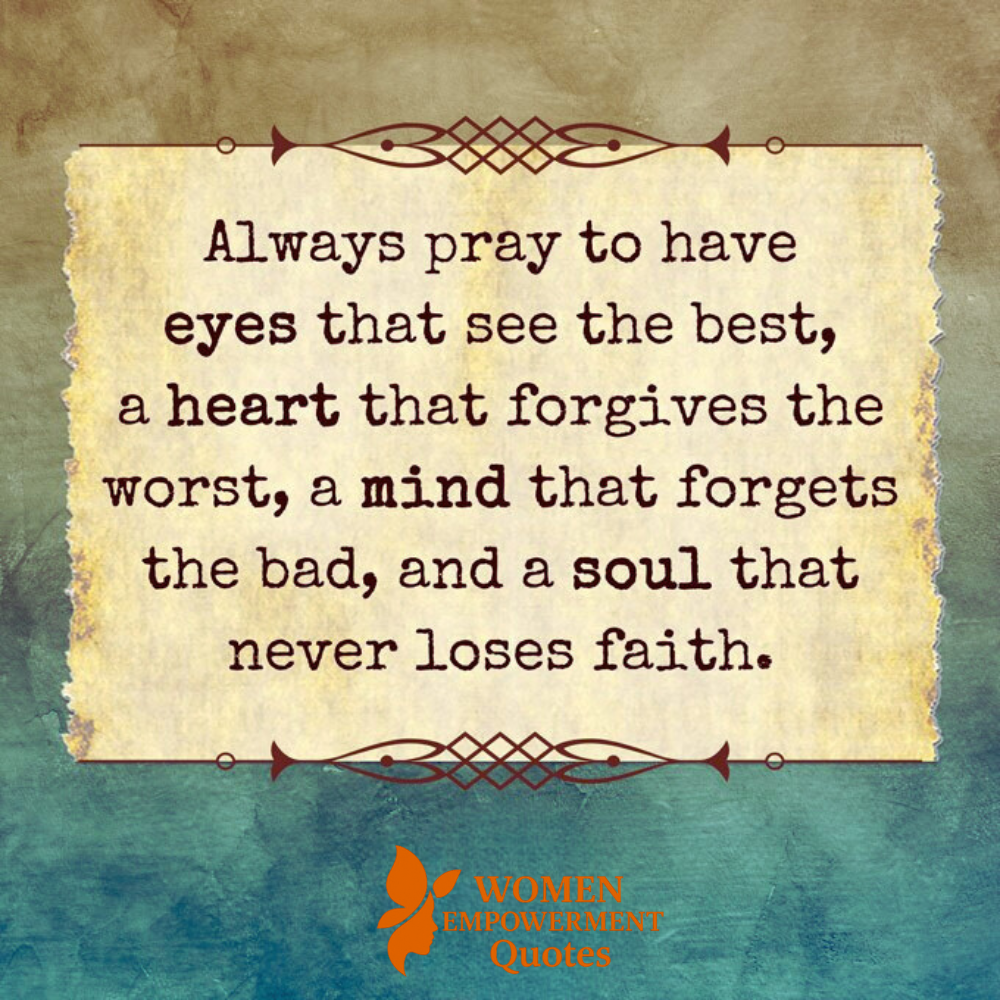
Seeing with Grace
In a world full of shadows, may we be among those who choose to see the light. To look for the good—not because it’s always obvious, but because it’s always worth finding. When we choose to see the best in others and in life, even during hardship, we nurture peace within ourselves and offer hope to those around us.
The Quiet Strength of Forgiveness
Forgiveness is not a weakness, nor a denial of pain. It’s a brave act of the heart—a quiet rebellion against bitterness. To forgive someone who has caused harm is to declare that their actions do not define our response. It is choosing healing over hatred. A forgiving heart doesn’t erase the past, but it no longer lets the past control the present.
Letting Go of What Hurts
To forget the bad is not to forget the lesson—it is to release the weight. It’s choosing not to relive pain, not to feed old wounds. The mind, when uncluttered by resentment, finds room to bloom with joy, compassion, and clarity. Peace begins when we let go of the stories that keep us stuck.
Keeping the Flame of Faith Alive
A soul that keeps its faith, even when life feels like a storm, is a soul anchored in something eternal. Faith doesn’t always explain. It doesn’t always answer. But it sustains. It lifts our gaze when everything else pulls us down. Whether your faith is in God, in goodness, or in the quiet return of hope, hold on to it—it’s the compass in the dark.
A Daily Whisper to the Soul
“Today, I choose to see the best, forgive the worst, release the pain, and nourish my faith.”
Related Quotes to Inspire Your Journey
-
“The greatest discovery of my generation is that a human being can alter his life by altering his attitudes.” – William James
-
“Faith is taking the first step even when you don’t see the whole staircase.” – Martin Luther King Jr.
-
“When you focus on the good, the good gets better.” – Unknown
-
“Happiness is not something ready-made. It comes from your own actions.” – Dalai Lama
-
“The only thing necessary for the triumph of evil is for good men to do nothing.” – Edmund Burke